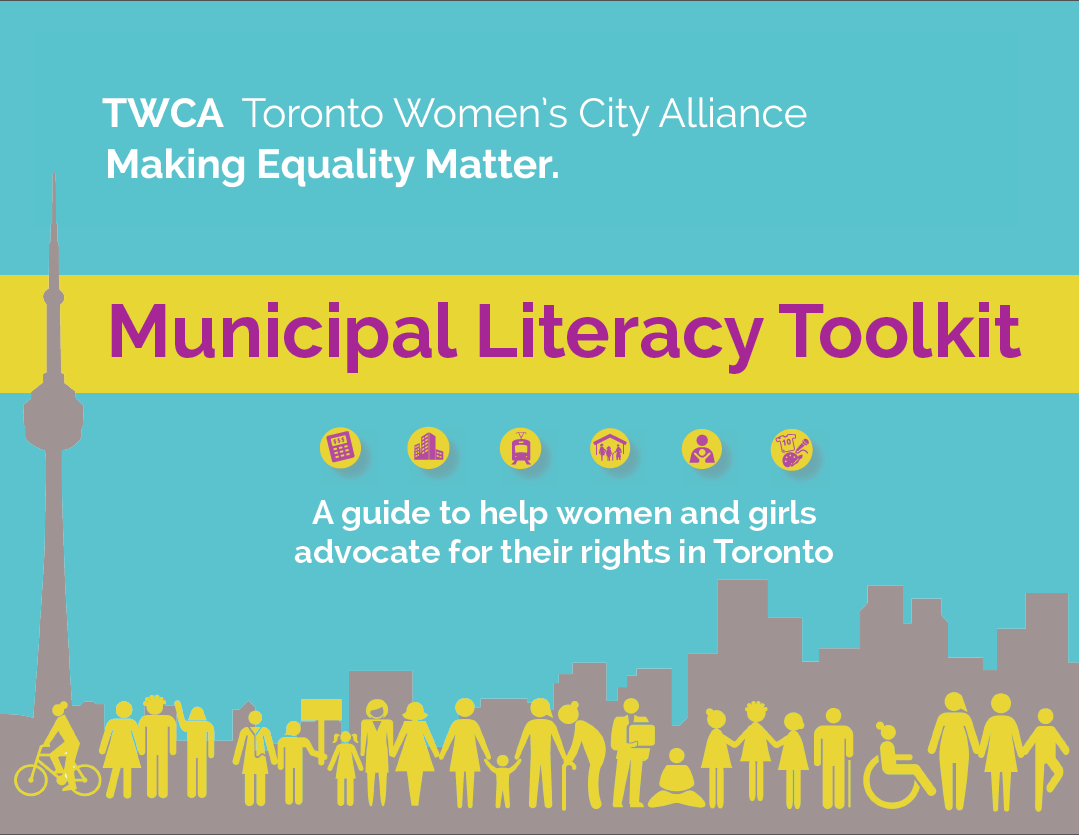January 20, 2014
The Chair
Community Development and Recreation Committee
10th floor, West Tower, City Hall
100 Queen Street West
Toronto, ON M5H 2N2
Dear Councillor,
I am writing on behalf of Toronto Women’s City Alliance (TWCA) with regard to the Committee’s consideration of Item CD26.1 Overview of Fees for Recreation Programs. Toronto Women’s City Alliance advocates for equitable and accessible municipal policy in the City of Toronto. Universal access to opportunities for recreation is a crucial aspect of this.
The Committee has given a directive to City Council that “universal access to recreation services be provided in all recreation centres in the City of Toronto, and that the Deputy City Manager and Chief Financial Officer include the necessary resources in the 2014 recommended budget subject to the 2014 budget review process.” This is an extremely important directive that is vital to the City’s recreation policy for several reasons, as outlined below.
First, the City’s own consultation (carried out by Parks, Forestry and Recreation) has noted the personal, social, environmental and economic benefits of recreation. However, opportunities for recreation in Toronto are not universally accessible, with significant waitlists.
Second, program fees were the most frequently cited barrier to participation in recreation programs (Overview of Fees for Recreation Programs 2013). The Committee must consider the fact that this barrier disproportionately affect residents on low incomes and, in particular, racialized women and youth. These are the very residents that would arguably benefit the most from universal access to recreation, given the data which confirms the relationship between racialization and inequities in health, and poorer health outcomes for racialized populations in Toronto (Racialization and Health Inequities in Toronto 2013).
Finally, in our own work on this issue, Toronto Women’s City Alliance has met with and heard from many residents who are unable to access recreation programs because of the prohibitive cost. Consider that the average single mother must pay for transportation, reach the recreation service area and then pay for recreational programming for her children. It is not simply the cost of a single program for a single adult/youth/child. Individuals and families are shut out by inequitable and non-universal access.
Universal access to recreation is an important and foundational part of the Committee’s and City Council’s efforts to build healthy communities that support diversity in Toronto. We urge the Committee to continue to support the motion for universal access to recreation services in 2014.





